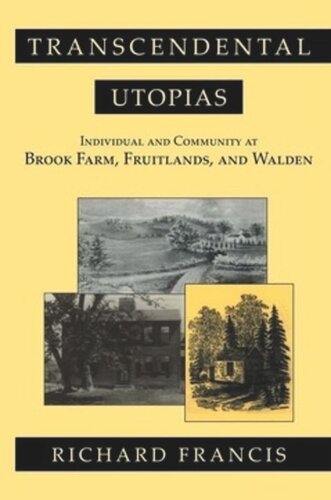

Most ebook files are in PDF format, so you can easily read them using various software such as Foxit Reader or directly on the Google Chrome browser.
Some ebook files are released by publishers in other formats such as .awz, .mobi, .epub, .fb2, etc. You may need to install specific software to read these formats on mobile/PC, such as Calibre.
Please read the tutorial at this link: https://ebookbell.com/faq
We offer FREE conversion to the popular formats you request; however, this may take some time. Therefore, right after payment, please email us, and we will try to provide the service as quickly as possible.
For some exceptional file formats or broken links (if any), please refrain from opening any disputes. Instead, email us first, and we will try to assist within a maximum of 6 hours.
EbookBell Team

4.8
44 reviewsNew England Transcendentalism was a vibrant and many-sided movement whose members are probably best remembered for their utopian experiments, their attempts to reconcile the contingent world of history with what they perceived as the stable and patterned world of nature. Richard Francis has written the first book to explore in detail the ideological basis of the three famous experiments during the 1840s: Brook Farm, Fruitlands, and Henry David Thoreau's "community of one" on the shores of Walden Pond.Francis suggests that at the heart of Transcendentalism was a belief that all phenomena are connected in a repetitive sequence. The task was to explain how human society could be reordered to benefit from this seriality. Some members of the movement believed in evolutionary progress, whereas others hoped to be the agents of a sudden millennial transformation. They differed, as well, in their views as to whether the fundamental social unit was the individual, the family, the phalanstery, or the community. The story of the three communities was, inevitably, also the story of particular individuals, and Francis highlights the lives and ideas of such leaders as George Ripley, W. H. Channing, Bronson Alcott, Charles Lane, and Theodore Parker. The consistent underlying beliefs of the New England Transcendentalists have exerted a powerful influence on American intellectual and cultural history ever since.